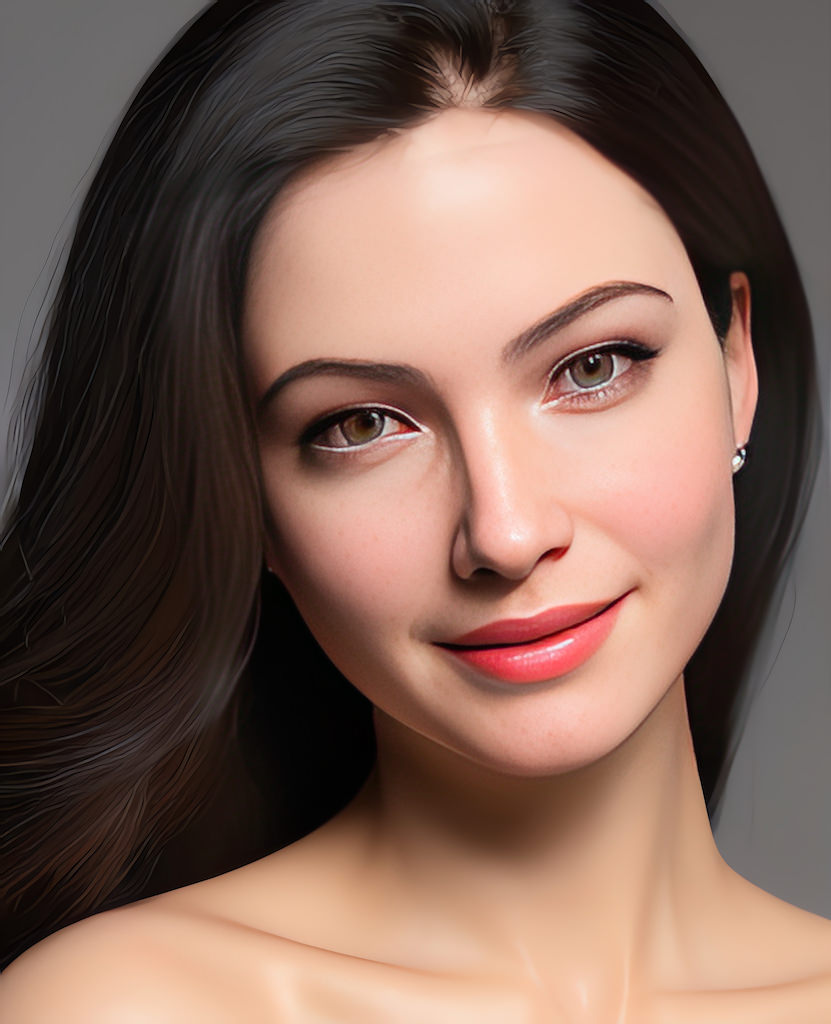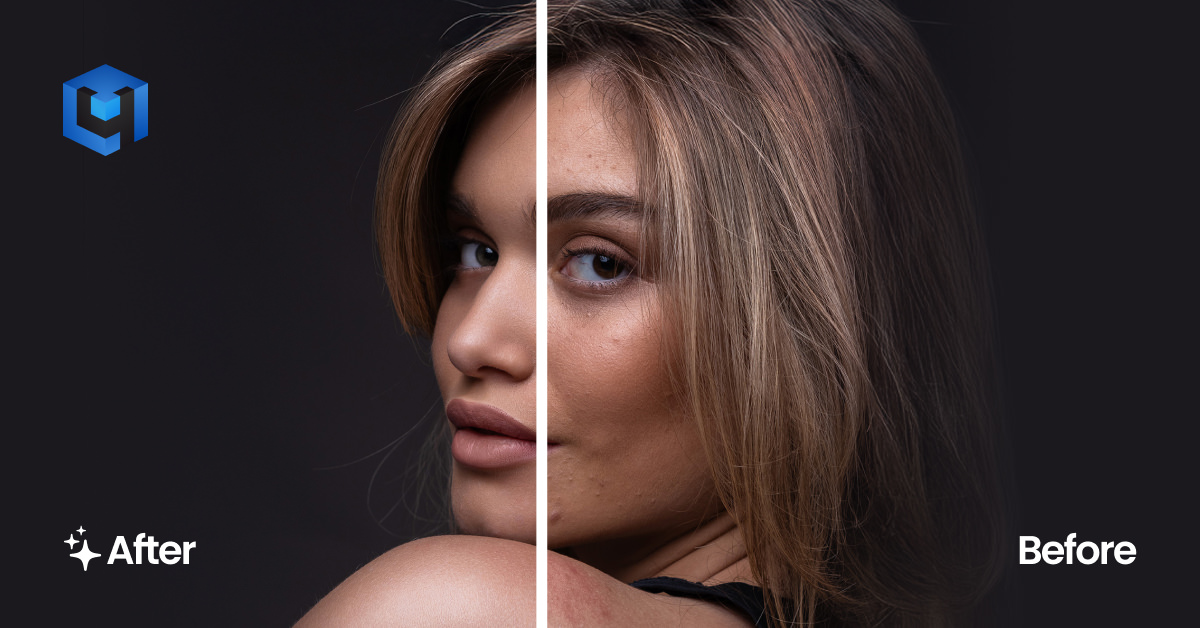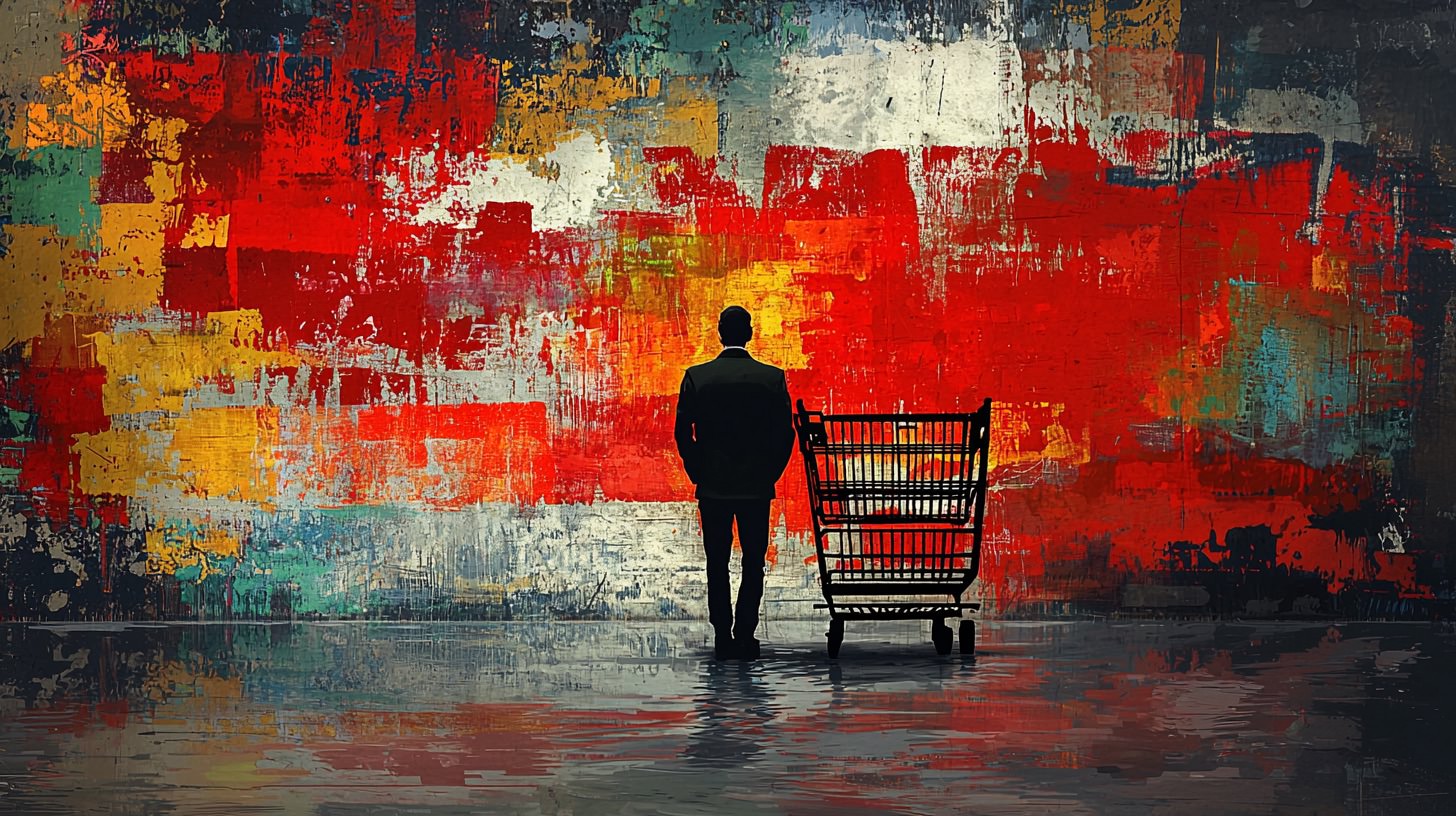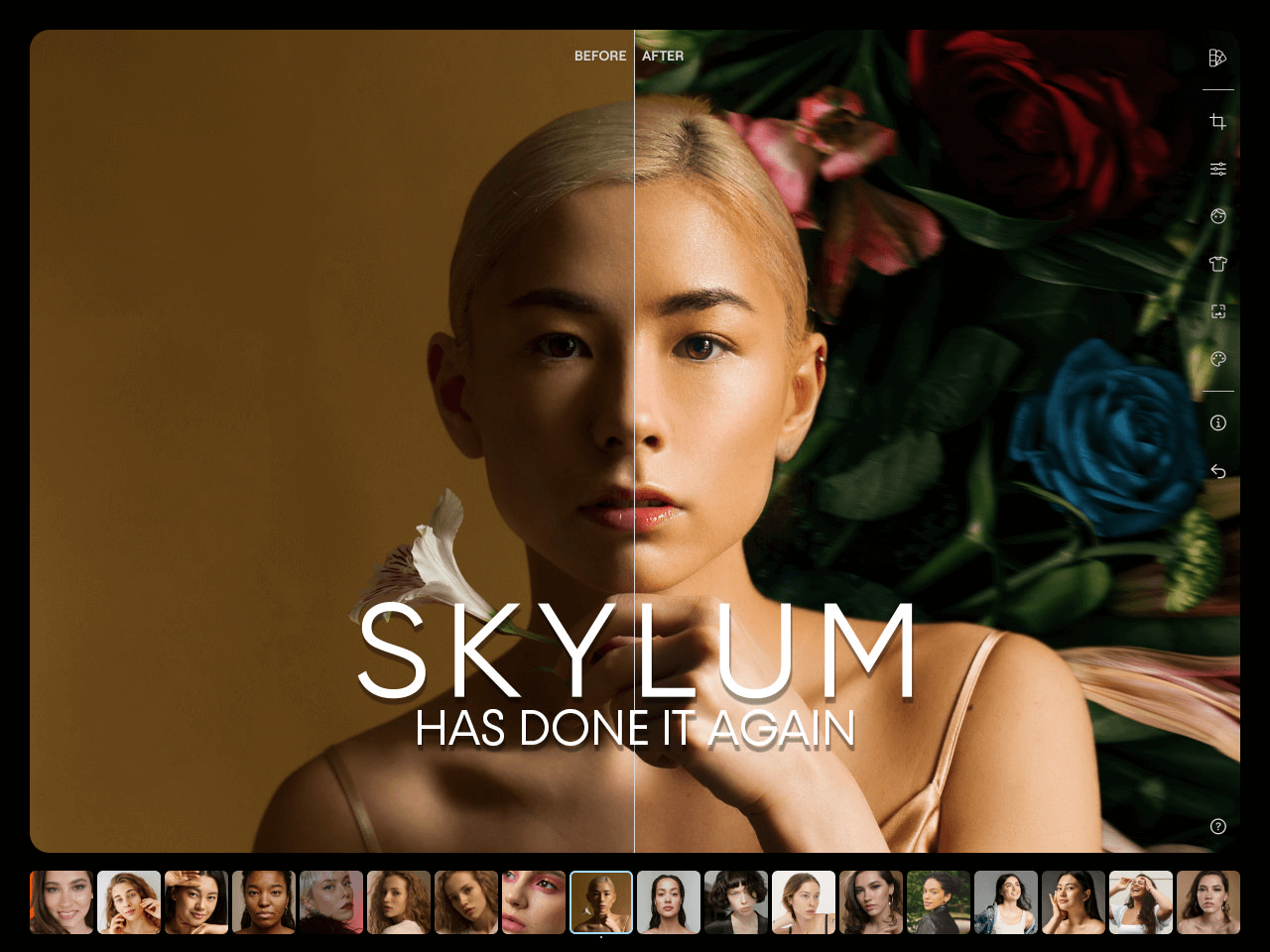I believe it is about time we talk about Artificial Intelligence in Photography because the rise of AI technology is rapidly changing the way we think about Photography. No longer just a tool for capturing and storing images, AI can now be used to automatically edit and enhance photos, provide unique perspectives, and even create entirely new images.
One of the most exciting developments of AI in Photography is the ability to automatically edit and enhance photos. This technology uses machine learning algorithms to analyze a photo and make adjustments such as colour correction, blemish removal, and composition adjustments. This can save photographers significant time and effort, allowing them to focus on more creative aspects of their work.
Examples of Applications of Artificial Intelligence in Photography
Practical
For example, imagine you're out on a photo shoot, and you capture a stunning landscape. However, the colours are a bit dull, and the sky is blown out. With AI-powered editing tools, you can quickly and easily fix these problems and create a more vibrant and dynamic photo. This can be especially useful for photographers who shoot in challenging lighting conditions, such as low light or direct sunlight.
Another application of AI in photography is facial recognition. This technology allows a computer to identify and track faces in a photograph, making it easier to organize and sort large collections of photos. This can be especially useful for portrait photographers, who often have to deal with a large number of images featuring different subjects.
For instance, let's say you're a portrait photographer and have just finished a photo shoot with 20 people. Without facial recognition, you would have to manually go through each photo and label them with the names of the people in them. This can be a time-consuming and tedious process. With AI, however, you can quickly and easily organize your photos by face, allowing you to quickly find the images you're looking for.
Creative
But AI in photography is not just about practical applications. It can also have more creative purposes. For example, some AI-powered tools can generate entirely new images based on a set of input photos. This can be a fun way to experiment with different styles and create unique, one-of-a-kind shots.
For instance, let's say you have a series of photos that you took on a trip to the beach. You could use an AI tool to combine these photos and create an entirely new image that incorporates elements from each of the individual shots. This could be a great way to experiment with different colour palettes and compositions and create something truly unique and artistic.
And there are AI tools that can generate images based on a series of words, not just other photos. I touched on them in my post here (video), and I am constantly exploring new possibilities with these exciting tools.
Leaders
Several companies are leaders in the field of Artificial Intelligence in Photography. Some examples include Adobe, Skylum and Google. These companies are at the forefront of using AI to enhance and automate various aspects of photography.
Adobe
Sensei is a suite of artificial intelligence and machine learning technologies developed by Adobe. It is designed to assist with a variety of tasks, such as image and video recognition, natural language processing, and predictive analytics. Adobe Sensei is used by many Adobe products, such as Photoshop and Lightroom, to provide intelligent features and automation capabilities. It can help users create better content faster and more efficiently. And can fit into a wide range of other applications, such as personalized marketing and customer service.
This technology is advancing rapidly. Photoshop's Neural Filters can now enhance facial traits, restore old images and even change the season in a landscape (see below)!
In Lightroom, the new masking feature now recognises all individuals in a photo and can recommend specific masks for faces, skin, clothes, etc., to help you apply precise edits.
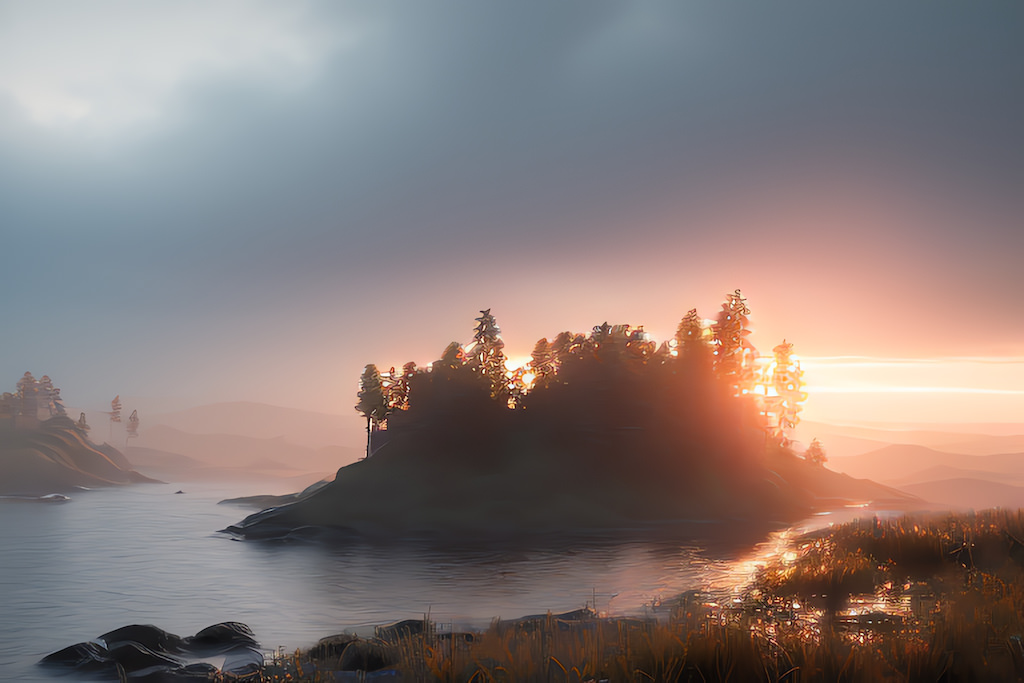
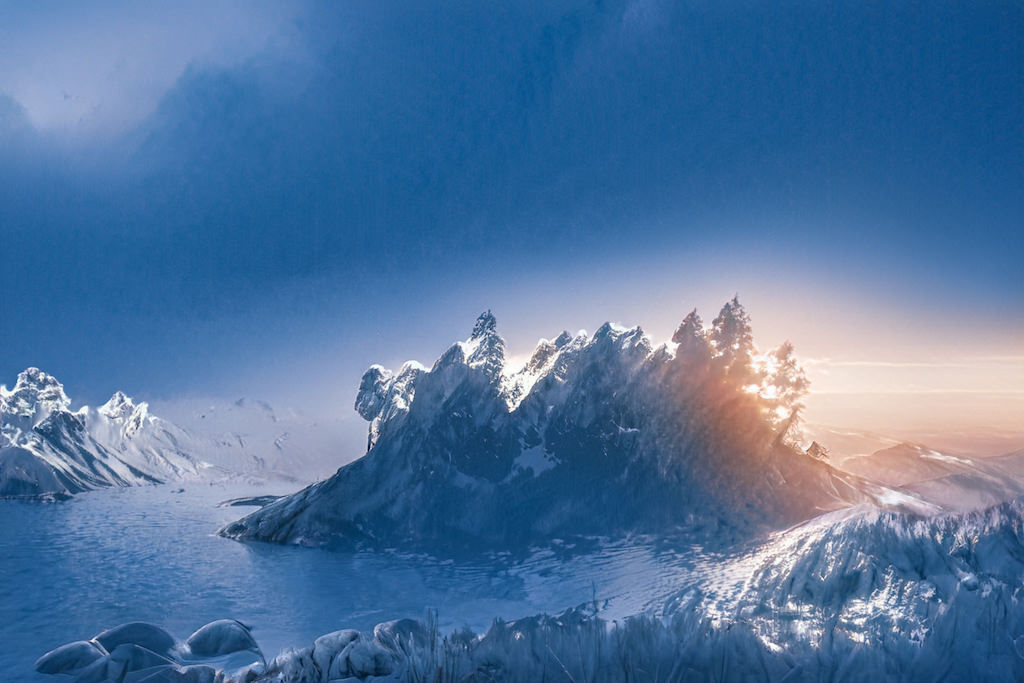
Skylum
With its Luminar software, Skylum is going full-on into AI-based applications. The new iterations, particularly the latest Luminar Neo, can analyse an image and recommend the best ways to edit it. With different recommendations for landscapes, portraits and so on.
Skylum's customer care is not great, but the developers are doing a fantastic job. Their constant push for Artificial Intelligence in Photography paves the way for many other software companies. Tools that we now see in most editing applications made their first appearance in Luminar (for example, AI-based automatic sky replacement).
Google and Apple
Google Photos integrates AI technology in many aspects of the app. From facial recognition, allowing for photos with the same subject to be archived together, to recognising which photos may be blurred (or duplicate) and therefore suggesting to delete them to save space.
On Google Pixel phones, the photo app now uses machine learning to offer automatic suggestions tailored to the specific photo you’re editing.
Since developing its Portrait mode, Apple has integrated Artificial Intelligence in photography. For example, in this mode, the iPhone uses machine learning to let you artificially manipulate the source of light in a photo. In Cinematic mode, you can even manipulate the focus AFTER you record a video.
Eventually, Apple will integrate AI into everything and we will be able to edit photos by telling Siri what to do. It will happen.
others
I have already mentioned AI-based technology on these pages. From the all-automated “magical” capabilities of TopazLabs Photo AI to the creations of text-to-image applications like Midjourney, Dall-E and Stable Diffusion (in use within this article as well).
And Meta will soon start training its own AI, for sure.
The Future of Artificial Intelligence in Photography
It is difficult to predict precisely how AI in photography will evolve, but a few potential developments are worth considering. One possibility is that AI-powered tools will become even more advanced and sophisticated, allowing photographers to achieve even more impressive results with their photos. For instance, AI could automatically create entirely new compositions by combining elements from multiple photos or applying complex and sophisticated edits that would be difficult or impossible for a human to achieve.
Another potential development is that AI will become more integrated into the photography process, allowing photographers to use it in real-time while they're taking photos. For example, an AI-powered camera could analyze the scene in front of it and suggest how to adjust the settings to achieve the best possible shot. This could be especially useful for photographers who are just starting out and still learning about the ins and outs of their equipment.
Finally, it's also possible that AI will become more accessible to the general public. Currently, AI-powered tools and services are used mainly by professional photographers and those with high technical expertise. But in the future, it's possible that AI will become more user-friendly and accessible to a broader audience, allowing even novice photographers to take advantage of its capabilities.
Overall, the future of AI in photography is likely to be full of exciting developments and new possibilities. As technology continues to evolve and become more advanced, it has the potential to transform the way we think about photography and the creative potential of the medium.
Controversy
There are also some potential controversies surrounding using Artificial Intelligence in photography. One issue is the potential for AI to replace human photographers, potentially leading to job losses and economic disruption. As AI-powered tools become more advanced, they may be able to perform many of the same tasks as human photographers, potentially making some jobs obsolete. This could concern professional photographers, who may see their livelihoods threatened by the rise of AI.
I don't see this happening too soon or at all. But it is a concern for some.
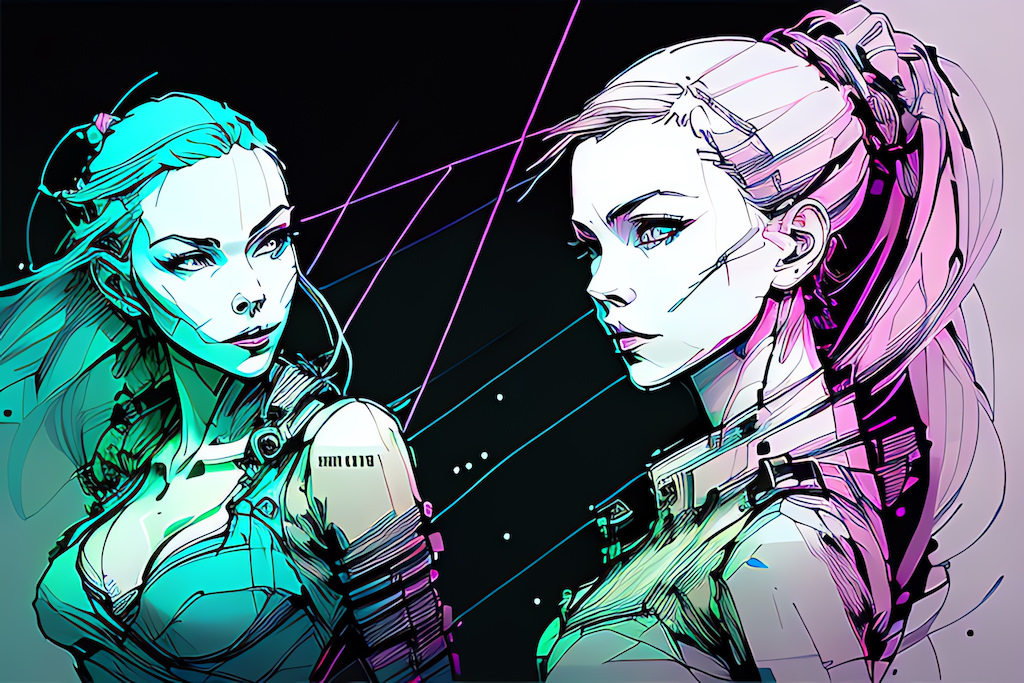
Another potential controversy is the use of AI for automatic image manipulation. Some people may be concerned about AI's potential to create fake or misleading images that could spread disinformation. For instance, AI-powered tools can create fake photos or videos that are designed to look real, potentially causing confusion and mistrust among the public.
We can already see Deepfake technology used to replace faces in videos. Right now, these are demonstrations that you can still tell are fake. But with progress, AI could make them indistinguishable.
Additionally, there are also concerns about the ethical implications of AI in photography. For example, some people may be uncomfortable with the idea of AI automatically making decisions about which parts of a photo to edit or enhance. This could raise questions about who is ultimately responsible for the final image. And whether the AI's decisions are always in the best interests of the photographer or the subject of the photo.
Conclusion
Overall, while using Artificial Intelligence in photography has many potential benefits, some controversies need to be considered. Photographers, policymakers, and the general public must carefully evaluate the potential risks and challenges associated with AI in photography and take steps to address these concerns as the technology continues to evolve.
Despite the potential challenges and controversies surrounding the use of AI in photography, it is ultimately a fascinating development that offers a wide range of possibilities. AI can revolutionise how we think about photography and the creative potential of the medium. It can automate tedious tasks, provide new creative outlets, and open up new opportunities for photographers of all skill levels. So, while there may be some challenges and controversies to consider, the overall potential for AI in photography is very positive and exciting.
AI is changing how we think about photography and opening up new opportunities for photographers of all skill levels.
Whether you're a professional photographer or someone who loves taking pictures, AI can revolutionise your approach. So why not give it a try and see what amazing new images you can create?
Surprise?
This post was created with ChatGPT, a conversational AI taking the web by storm. It's not 100% AI-made, as I verified the content and added my own input. But much of what you just read was written by an Artificial Intelligence. Were you already thinking this was the case while reading?

